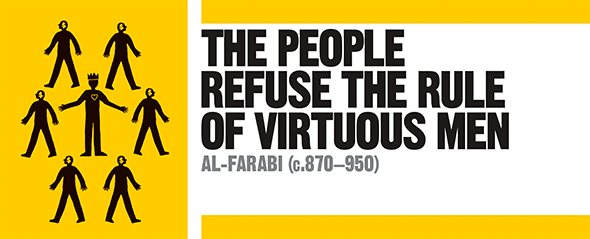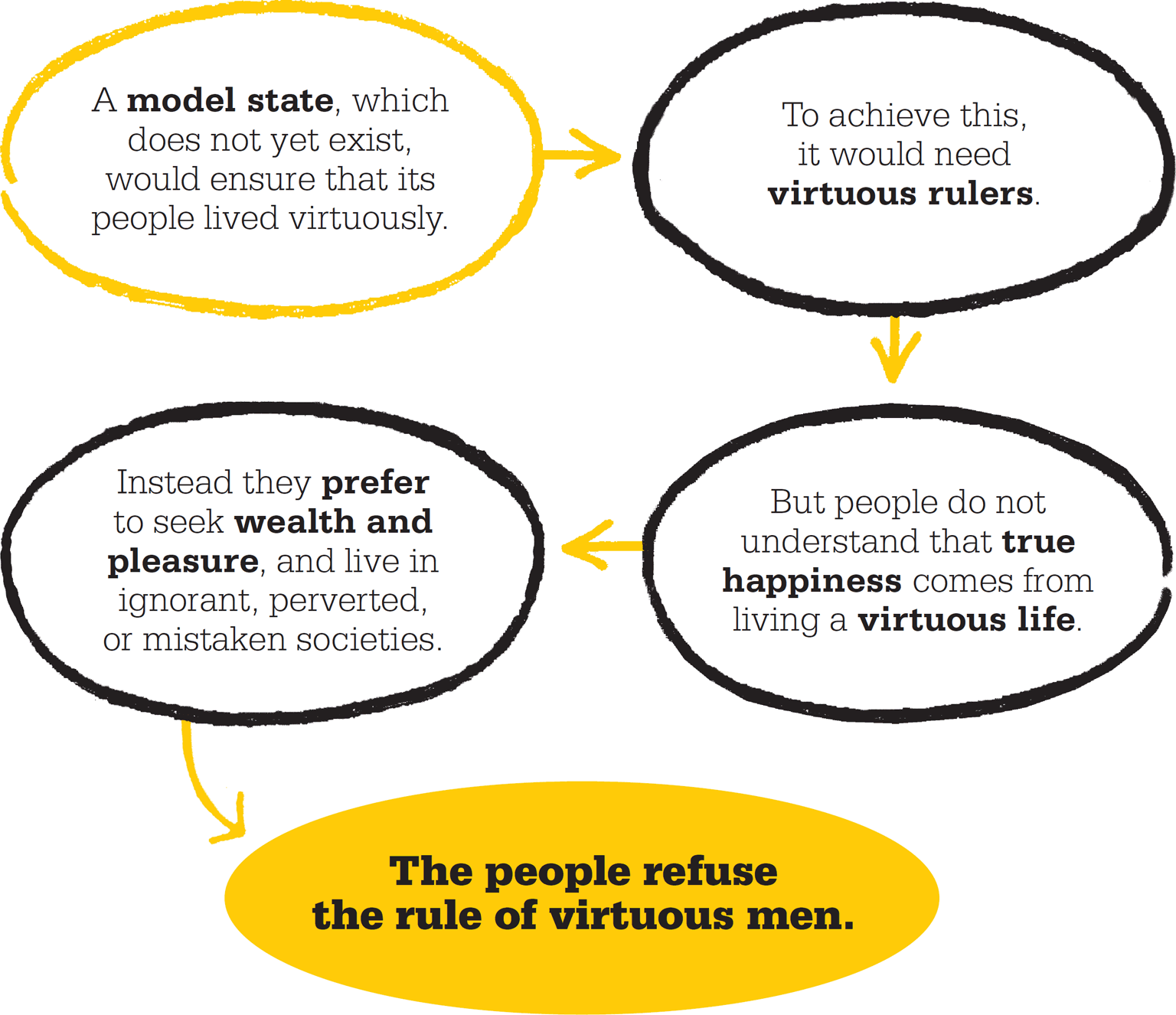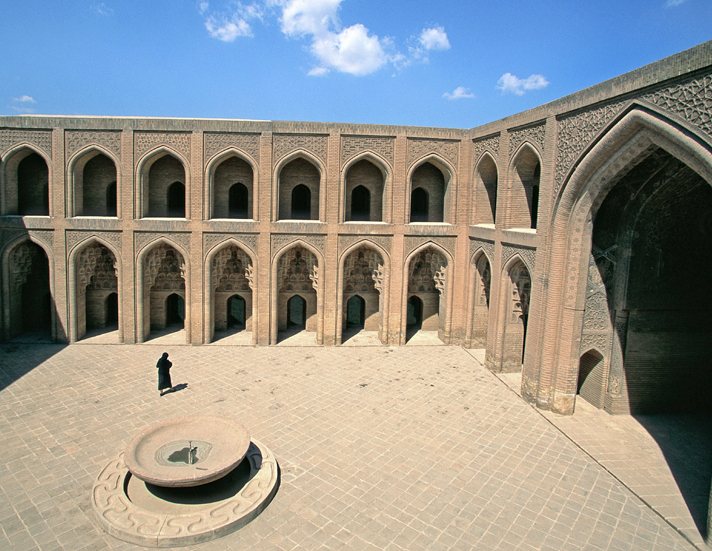
IN CONTEXT
Islam
Political virtue
c.380–360 BCE Plato proposes rule by “philosopher kings” in the Republic.
3rd century CE Philosophers such as Plotinus reinterpret Plato’s works, introducing theological and mystical ideas.
9th century The Arab philosopher Al-Kindi brings Classical Greek texts to the House of Wisdom, Baghdad.
c.980–1037 The Persian writer Avicenna incorporates rational philosophy into Islamic theology.
13th century Thomas Aquinas defines the cardinal and theological virtues, and differentiates between natural, human, and divine law.
With the spread of the Islamic empire in the 7th and 8th centuries came a flourishing of culture and learning often referred to as the Islamic Golden Age. Libraries were established in many of the major cities of the empire, where texts of the great Greek and Roman thinkers were kept and translated. Baghdad, in particular, became a renowned center of learning, and it was there that Al-Farabi built his reputation as a philosopher and commentator on the works of the Greek philosopher Aristotle.

Like Aristotle, Al-Farabi believed that man by nature needs to live in a social structure such as a city-state in order to lead a good and happy life. He also believed that the city was only the minimum size in which this was possible, and felt the same principles could be applied to nation-states, empires, and even a world-state. However, it was Aristotle’s teacher, Plato, who most influenced Al-Farabi’s political thinking, in particular with his vision of the ideal state and how it would be ruled. Just as Plato advocated the rule of “philosopher kings” who alone understand the true nature of virtues such as justice, Al-Farabi, in The Virtuous City, describes a model city ruled by a virtuous leader who guides and instructs his people to live virtuous lives that will bring them true happiness.
Divine wisdom
Where Al-Farabi differs from Plato is in his conception of the nature and origin of the ideal ruler’s virtue, which for Al-Farabi was divine wisdom. Rather than a philosopher king, Al-Farabi advocated rule by a “philosopher prophet” or, as he describes it, a just Imam.
"The goal of the model state is not only to procure the material prosperity of its citizens, but also their future destiny."
Al-Farabi
However, Al-Farabi makes it clear that his Virtuous City is a political Utopia. He also describes the various forms of government that exist in the real world, pointing out their failings. He identifies three major reasons why they fall short of his ideal: they are ignorant, mistaken, or perverted. In an ignorant state, the people have no knowledge of how true happiness comes from leading a virtuous life; in a mistaken state, the people misunderstand the nature of virtue; in a perverted state, they know what constitutes a virtuous life, but choose not to pursue it. In all three types of imperfect state, the people pursue wealth and pleasure instead of the good life. Al-Farabi believed the souls of the ignorant and mistaken would simply disappear after death, while those of the perverted would suffer eternal sorrow. Only the souls of men from a Virtuous City could enjoy eternal happiness. However, as long as the ignorant, mistaken, and perverted citizens and their leaders pursue their earthly pleasures, they will reject the rule of a virtuous leader—he will not give them what they believe they want—and so the model Virtuous City has yet to be achieved.

Al-Farabi developed his ideas in Baghdad, Iraq, which was a center of learning in the Islamic Golden Age, and still boasts some of the oldest universities in the world.
AL-FARABI
Referred to as the “Second Teacher” (after Aristotle) among Islamic philosophers, little is known for certain of the life of Abu Nasr al-Farabi.
He was probably born in Farab (modern-day Otrar, Kazakhstan) in around 870, and went to school there and in Bukhara, now in Uzbekistan, before traveling to Baghdad to continue his studies in 901.
In Baghdad, he studied alchemy and philosophy with both Christian and Islamic scholars. He also became a renowned musician and noted linguist. Although he spent most of his life in Baghdad as a qadi (judge) and teacher, Al-Farabi also traveled widely, visiting Egypt, Damascus, Harran, and Aleppo. It is believed that he wrote most of his works in his time in Aleppo, working for the court of Sayf al-Dawla, ruler of Syria.
Key works
c. 940–950
The Virtuous City
Epistle on the Intellect
Book of Letters
See also: Plato • Aristotle • Augustine of Hippo • Thomas Aquinas
